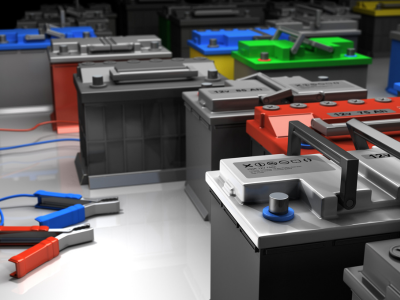Car batteries are an essential component of any vehicle, supplying the necessary electrical power to start the engine and run various electronic systems. A weak or failing battery can cause serious inconveniences, from difficulty starting the car to complete vehicle breakdowns. Understanding how to maintain your car battery, recognizing signs of trouble and knowing when to replace it can save you time, money and frustration.
Importance of a Well-Maintained Car Battery
A properly functioning car battery ensures smooth operation of the vehicle. It powers essential components such as the ignition system, lights, radio, air conditioning and more. If the battery is not in optimal condition, the car may not start or electrical functions may become unreliable. Routine maintenance helps prolong battery life and ensures uninterrupted performance.
Common Causes of Car Battery Failure
Car batteries can fail due to several reasons, including age, weather conditions and improper maintenance. Some of the most common causes include:
- Old Age - Most car batteries last between three to five years. As they age, their capacity to hold a charge diminishes.
- Extreme Temperatures - High temperatures can cause battery fluid to evaporate, while cold weather slows down chemical reactions inside the battery, leading to poor performance.
- Frequent Short Trips - Starting the engine consumes a large amount of power and short trips may not allow the battery to recharge fully.
- Corroded or Loose Battery Connections - Dirty or loose terminals can lead to poor electrical contact and inefficient charging.
- Parasitic Drain - Leaving lights, radio or other accessories on when the engine is off can drain the battery.
- Faulty Charging System - A malfunctioning alternator may fail to charge the battery adequately, leading to premature failure.
Signs That Your Car Battery Needs Replacement
Knowing when to replace a car battery is crucial in avoiding sudden breakdowns. Some signs that indicate a failing battery include:
- Slow Engine Crank - The engine takes longer than usual to start, indicating a weak battery.
- Dashboard Warning Light - Many cars have a battery indicator light that signals charging system issues.
- Dim Headlights and Electrical Issues - If your lights flicker or electronic components malfunction, it could be due to a weak battery.
- Swollen Battery Case - A bloated or misshaped battery is a sign of excessive heat and internal damage.
- Unusual Odors - A sulfur or rotten egg smell can indicate a leaking battery.
How to Maintain Your Car Battery for Longer Life
Proper battery maintenance can significantly extend its lifespan and performance. Here are some essential tips:
- Keep Battery Terminals Clean - Regularly inspect and clean the terminals to prevent corrosion and maintain a solid connection.
- Ensure a Secure Fit - A loose battery can vibrate excessively, leading to internal damage. Always ensure the battery is securely fastened.
- Limit Short Trips - Take longer drives occasionally to allow the alternator to recharge the battery fully.
- Turn Off Accessories When the Engine is Off - Avoid leaving lights, air conditioning or the radio on without the engine running.
- Check the Charging System - Ensure that the alternator and voltage regulator are working correctly to charge the battery efficiently.
- Protect Against Extreme Temperatures - If you live in an area with extreme weather, consider using an insulated battery cover to minimize temperature-related damage.
Choosing the Right Battery for Your Car
When replacing a car battery, selecting the right one is crucial for optimal performance. Consider the following factors:
- Battery Size and Type - Ensure that the replacement battery matches the required specifications for your vehicle.
- Cold Cranking Amps (CCA) - This rating measures the battery’s ability to start the engine in cold conditions. Choose a battery with adequate CCA for your region.
- Reserve Capacity (RC) - RC indicates how long the battery can provide power without the alternator running. A higher RC means better backup power.
- Maintenance-Free vs. Maintainable Batteries - Some batteries require regular water top-ups, while others are sealed and maintenance-free.
Why Choose GMG Industries for Car Battery Services?
At GMG Industries, we offer expert car battery services, including battery inspection, replacement and charging system diagnostics. Our team of skilled professionals ensures that your battery operates at peak performance. We stock high-quality batteries from trusted brands and provide expert recommendations based on your vehicle's needs.
Conclusion
A healthy car battery is essential for a reliable and hassle-free driving experience. Regular maintenance, timely replacements and choosing the right battery can save you from unexpected breakdowns and costly repairs. GMG Industries is your trusted partner for all battery-related services, ensuring that your vehicle remains in excellent condition. Stay ahead of battery troubles by scheduling a routine check-up with us today.
Stay tuned for our next blog on Tyres and Wheel Care.

